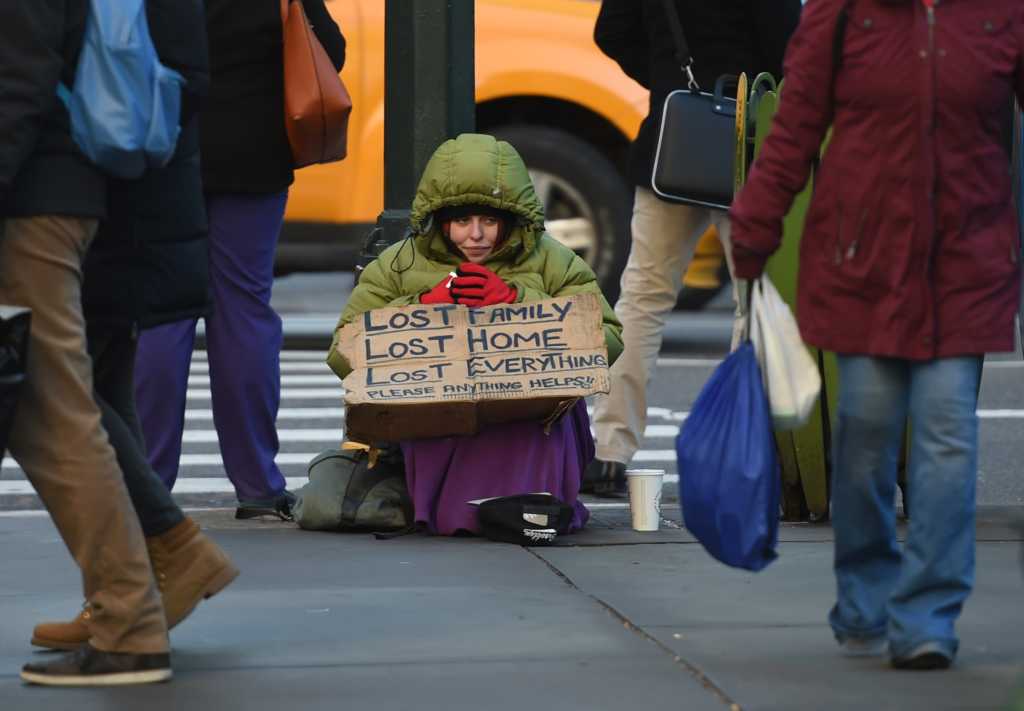18-year-old Harvard University college freshman Nadya Okamoto uses her previous life as a homeless teen to create positive change for women and girls by launching the non-profit, Camions of Care, an organization that distributes female hygiene products to the homeless.
As Okamoto revisits her past life in a Q and A with Faithwire, we learn about what drives her and how she used her background as a youth without a home to build a company that’s now in 17 different states, including her home base of Portland.
Faithwire: What advice would you give other young women who are homeless as teens?
Nadya Okamoto:I would say that I had the privilege of always having had a place to stay when my family didn’t have a home of our own–we had more of a couch-surfing experience with some close friends–so for many homeless teens, I am very privileged in comparison to the living situation that they may be facing. Regardless, all youth in housing or financial insecure situations, should recognize that it is not their fault and not their responsibility. I fell into this dangerous trap of blaming my family’s situation on myself and feeling helpless and depressed because I felt incapable of helping my family, and I often felt like a burden to my mom. However, this is a dangerous mindset and, if anything, only limits your ability. So, it is important to recognize that it is not your fault, and to just keep recognizing where your opportunities are and take full advantage of them. Remember that no matter what, your voice matters, and you have potential, you just have to find it and then maximize it.
Faithwire: What lessons did you take away from your experience as a homeless youth that drove you to start this non-profit and go to Harvard?
Nadya Okamoto: I discovered the unaddressed natural need of homelessness for myself really during my freshman and sophomore years of high school, when my family experienced what it is like to not have a home of our own for seven months. During this, what I call, “time of transition,” my bus commute to school was usually over two hours long, and I spent a weekend in a shelter by myself to hide bruises I endured (from an abusive relationship) from my mom. Through conversations that I had with both homeless women on my commute and then also in the weekend that I spent at a shelter, I really started to hear how common it was for women to name menstruation as one of their biggest challenges as homeless women. I collected stories of their using found cloth, toilet paper, and most commonly brown paper grocery bags to absorb their menstrual blood. Hearing their stories sparked a privilege check within me in which I realized how blessed I was to have educational opportunities and a family, and inspired me to do something about it. Before my family moved back into our own apartment, I would spend time collecting menstrual hygiene products on my own and then handing them out to the women on the way to school, this is where the idea of distribution to women and girls in need came from. Originally my idea was to have a direct distribution service that handed out care packages of menstrual hygiene products. However, after a few weeks, we switched to an indirect method of distribution so we could reach more women in need. We later launched our chapter program after realizing how many youth were excited to get involved.
A big part of my recognizing my privilege through hearing the stories of other women was hearing about how they wished they had stayed in school, and how many of them urged me to stay in school and work hard. Many of them told me of how they felt no one would hire someone who was uneducated and many of them perceived themselves as unskilled. This motivated me to take full advantage of the tremendous educational opportunities I had attending Catlin Gabel, an exceptional private school on scholarship. I also found school work quite relaxing at the time because it gave me an outlet to focus my attention when things were challenging with my family.
Faithwire: How do you make your mission relatable for all those women who are still out on the street and embarrassed or ashamed to discuss hygiene or other female related topics?
Nadya Okamoto: I believe that our mission is relatable for all women, regardless of their living situation, because all women (no matter where they come from) will likely menstruate for an average of forty years of their life, from the age of 12 to 52, on a monthly basis. The anxiety and feelings of self-consciousness that we are trying to eradicate are thing that all women can easily relate to. Although it may be hard to jump right into the conversations we spark about how menstrual hygiene is a right and you should be proud of your period, women can relate to it.
Now after hearing what she’s done for herself and other women, we found a way that we can help lift her up and that’s voting for Nadya in L’Oreal Paris USA 2016 #WomenOfWorth contest.
Vote for Nadya to be @LOrealParisUSA 2016 #WomenOfWorth Help #CamionsofCare win $35,000! You can vote daily! https://t.co/BEnkUrF7ig pic.twitter.com/rLsVItAu0l
— PERIOD. (@periodmovement) October 11, 2016



